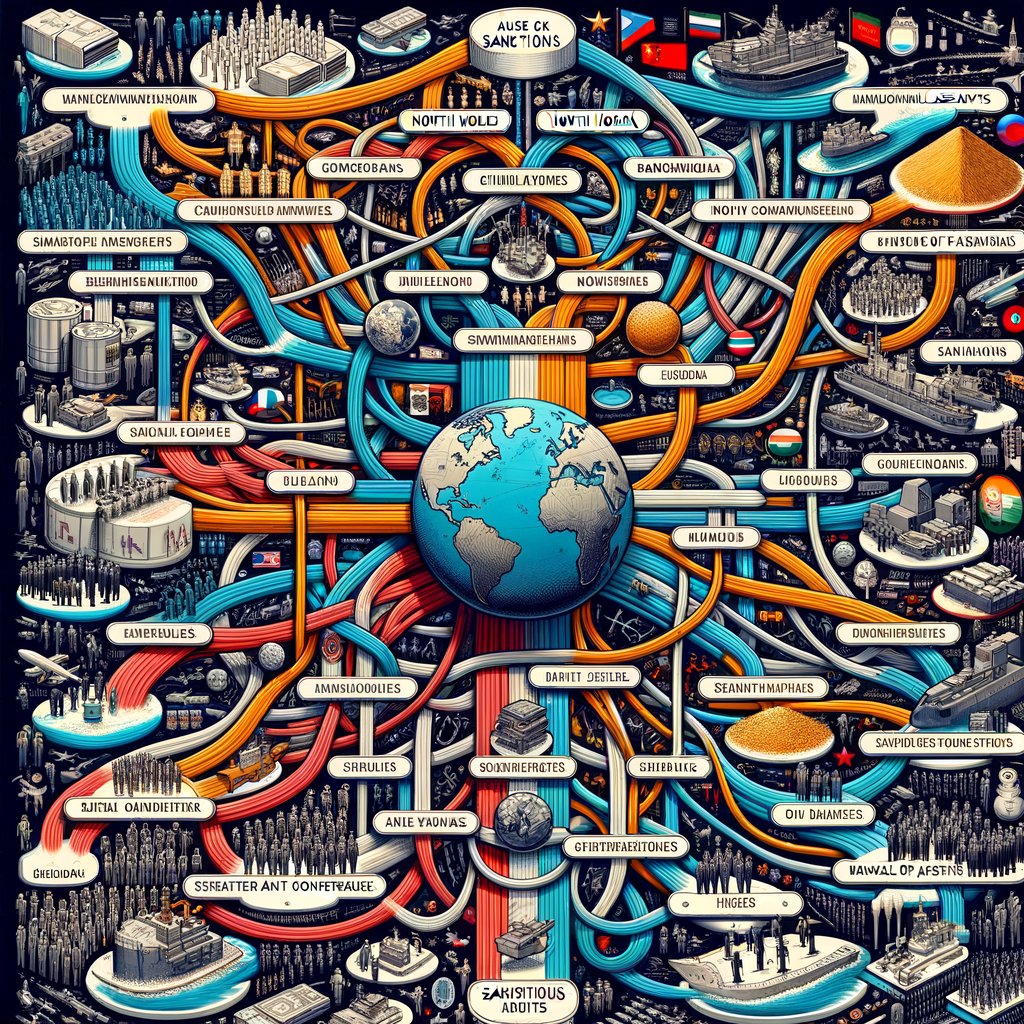Image created by AI
EU Escalates Sanctions on Russia, Targets Chinese Entities and Shadow Fleet
In a significant escalation of its sanctions regime, the European Union has unleashed a new wave of measures against Russia, intensifying pressure on the Kremlin and its global network. Announced by the EU Commission, this 15th package of sanctions extends its reach to include Chinese entities and a large number of vessels from Russia’s so-called shadow fleet, which has been pivotal in bypassing Western sanctions.
As the war in Ukraine persists, the EU is taking decisive steps to thwart Russia's efforts to evade economic restrictions. The latest sanctions list features an additional 52 vessels, raising the number of ships targeted to 79. These vessels have been pivotal in transporting oil, weapons, and grains outside the regular channels that comply with Western insurance and regulatory standards. Notably, this batch includes ships previously identified for delivering ammunition from North Korea to Russia.
The new restrictions mark a significant development as they bring the first full sanctions against Chinese persons and entities, signaling a broadened scope of the EU's sanctioning efforts. This move includes seven Chinese individuals and companies accused of helping Russia circumvent EU sanctions and supplying sensitive military components. This expansion reflects growing concerns over China’s role in supporting Russia’s military endeavors, particularly through technology transfers.
Among other additions are 84 new individuals and entities from various countries, including senior figures in Russia’s energy sector and officials from North Korea. The list also features economic operatives from regions like India, Iran, Serbia, and the UAE, illustrating the global reach of Russia’s operational network trying to sidestep sanctions.
Separately, the sanctions have spotlighted Niels Troost, an EU businessperson linked to trading Russian crude oil beyond set price caps. Despite his denial and intent to challenge the EU's decisions, his case underscores the complex international web of trade relationships that the EU aims to disrupt with these sanctions.
These expanded sanctions come as part of the EU's broader strategy to incapacitate the economic mechanisms that allow Russia to sustain its military engagement in Ukraine. The EU, along with the G7, continues to innovate on financial countermeasures, including leveraging frozen Russian central bank assets to support Ukraine directly.
Looking forward, the EU is already preparing its 16th sanction package, expected to further tighten the noose with potentially more stringent measures against Russian liquefied natural gas and exports. As the global community watches, these developments could set a precedent for the nature and reach of international sanctions in response to geopolitical conflicts.










